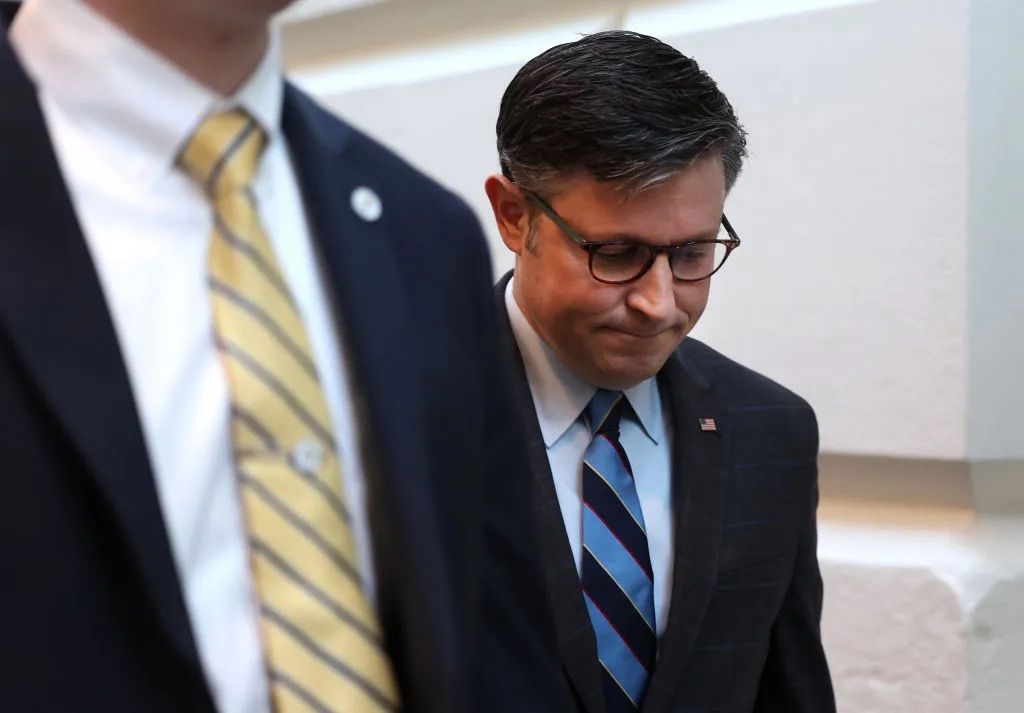House Speaker Mike Johnson announced on March 31 that the U.S. Congress would finally hold a vote on aid for Ukraine, after months of delay and deadlock. The $95 billion aid package, which also includes support for Israel and Taiwan, had initially passed in the Senate with bipartisan support in February. However, Johnson had been stalling on bringing it to a vote in the Republican-led House. Pressure mounted on Johnson as President Volodymyr Zelensky engaged in a one-on-one phone call with him on March 28, signaling that progress was being made. In an interview with former Congressman Trey Gowdy, Johnson hinted at “important innovations” in the aid package without providing further details. With dissent growing within his own party, Johnson acknowledged the need for bipartisan consensus to move the bill forward.
Republican Congressman Michael McCaul, head of the House Foreign Affairs Committee, also expressed confidence that Johnson would bring the aid package to a vote after Easter. However, signs of discontent within the Republican Party, particularly from Congresswoman Marjorie Taylor Greene, suggested that Johnson’s hold on his position as House Speaker was diminishing. Greene filed a motion to oust Johnson from his position, following the same procedure that led to former House Speaker Kevin McCarthy losing his job in October 2023. Johnson’s potential removal could lead to further chaos in Congress and highlight the influence of a minority of Republicans strongly opposed to providing aid to Ukraine. Congressman Don Bacon warned that a vote to remove Johnson was likely if he allowed the Ukraine aid package to be brought to the floor, raising concerns about the potential success of such a move.
Former European Council President Donald Tusk added pressure on House Speaker Johnson to make a decision on the stalled Ukraine aid, particularly in light of the recent Russian attack on Odesa. Tusk’s message to Johnson emphasized the urgency of the situation, urging him to take action in the face of escalating conflict. The situation in Ukraine, especially in cities like Odesa, underscored the critical need for swift and decisive support from the international community, including the United States. Tusk’s statement called on Johnson to consider the reality of the situation on the ground and prioritize the aid package to provide essential assistance to Ukraine in its defense against Russian aggression.
The delayed U.S. aid to Ukraine has been a point of contention within Congress, with partisan politics complicating the process. While the Senate had approved the aid package with bipartisan support, hurdles in the House highlighted divisions within the Republican Party regarding foreign aid and intervention. Johnson’s handling of the situation, and his ability to navigate these internal challenges, will determine the fate of the aid package and, ultimately, the level of support the U.S. provides to Ukraine in its time of need. The pressure on Johnson to move forward with the aid vote underscores the importance of swift action and solidarity in supporting Ukraine’s resistance against Russian military aggression.
The potential ousting of House Speaker Johnson carries significant implications for the functioning of Congress and the U.S.’s foreign policy stance. If Johnson is removed from his position, it could signal a shift in the dynamics of power within the Republican Party and impact how decisions regarding foreign aid and international relations are made in the future. The influence of dissenting Republicans opposed to aid for Ukraine raises concerns about the broader political landscape and the ability of the U.S. government to effectively respond to global crises. Johnson’s decision on the aid package, and his ability to navigate the internal challenges within his party, will shape the trajectory of U.S. support for Ukraine and its broader foreign policy objectives in the ongoing conflict with Russia.
In conclusion, the upcoming vote on aid for Ukraine in the U.S. Congress marks a critical juncture in the country’s response to the conflict in Eastern Europe. The delays and internal divisions within Congress highlight the challenges of navigating foreign policy decisions amidst partisan politics. The pressure on House Speaker Mike Johnson to bring the aid package to a vote underscores the urgent need for bipartisan action in supporting Ukraine. The outcome of this vote will not only determine the level of U.S. assistance to Ukraine but also have broader implications for the future of U.S. foreign policy and its stance on international conflicts. As the situation in Ukraine continues to escalate, timely and decisive support from the U.S. and its allies is crucial in addressing the humanitarian crisis and deterring further Russian aggression. Joining the fight to support independent journalism in Ukraine and staying informed about developments in Congress are essential steps in advocating for a stronger U.S. response to the crisis in Eastern Europe.


